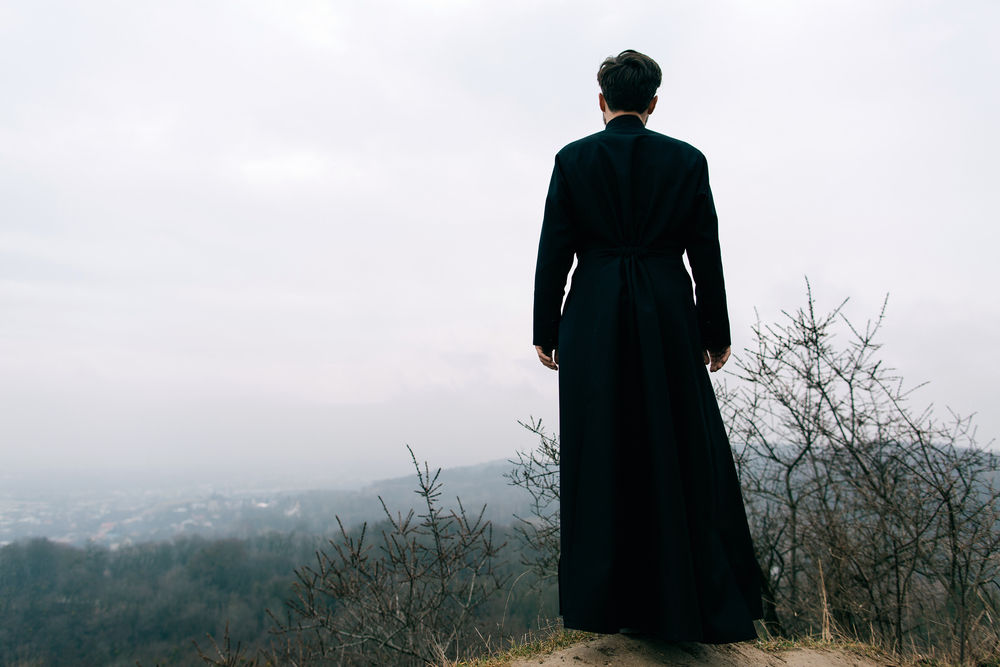Writing in the first person is always a risk, but the subject matter of this column is best done, I feel, through personal testimony.
In a world where chastity and celibacy are seen as naive and to be pitied and where there’s a general skepticism that anyone is actually living them out, personal testimony is perhaps the most effective protest.
What’s to be said for celibacy and chastity, whether these are lived out in a vowed religious context or are simply the given situation of anyone who is going through life celibate? Here’s my story:
At the age of 17, I made the decision to become a priest and enter a religious order, the Missionary Oblates of Mary Immaculate. That decision involved committing myself to celibacy for life.
Strange as this may sound, since I was only 17, I didn’t make that decision naively or out of some passing fancy. I intuited pretty accurately the cost, so much so that virtually everything inside me strongly resisted the call. Anything but that!
While I was drawn to ministry, the accompanying vow of celibacy was a massive stumbling block. I didn’t want to live as a celibate. Who does?
Indeed nobody should. But the inner call was so strong that, despite its downside, when I finished high school I gave a reluctant but solid assent and entered a religious congregation. Now, looking back on it, I see it still as the purest, most unselfish decision I’ve ever made.
I’ve been in religious life now for more than 50 years and have served as a priest for more than 45 of those years and, all told, celibacy has served me well, just as I can honestly say that I have served it in essential fidelity.
Celibacy has its upside: Beyond the inner work it forced me to do in terms of my relationship to God, to others and to myself (often painful work done in restlessness and prayer and on occasion with the help of a counselor), celibacy also afforded me a privileged availability for the ministry. If you move through this life as a priest and missionary, celibacy can be a friend.
But it isn’t always a friend. For me, celibacy has always been the hardest struggle within religious life and ministry, a habitual emotional crucifixion, as it should be.
There have been seasons — days, weeks, months and sometimes many months — when most everything inside of me screamed against it, when because of falling in love, or dealing with an obsession, or dealing with the one-sided energy within a male congregation, or when I was overcome with the fact I will never have children, or, when the simple, raw physical and emotional power of sexuality left me restless and frustrated enough that the man inside of me wanted to take back what the priest inside of me had once vowed.
Celibacy will have you sweating blood in the Garden of Gethsemane sometimes. It goes against some of the deepest, innate, God-given instincts and energies within you and so it doesn’t allow itself to be dealt with lightly.
That being said though, something else also needs to be said, something too little understood today: Celibacy can also be very generative because sexuality is about more than having sex.
Just before creating the sexes, God said: It is not good for the man to be alone! That’s true for every person who will ever walk this earth.
Sexuality is given to us to take us beyond our aloneness; but many things do that for us and full sexual intimacy is only one of them.
Perhaps the single, biggest misunderstanding about sex today is the belief that deep friendship, warm companionship, faith community and nongenital forms of intimacy are only a substitute, some second-best compensation for sex rather than a rich, generative modality of sex itself.
These aren’t a consolation prize for missing the real thing. They are, just as is having sex, one rich aspect of the real thing.
Recently, I phoned a priest on the 60th anniversary of his ordination. Eighty-five years old now, he had this to say: “There were some rough times, all of my classmates left the ministry and I had my temptations, too. But I stayed and, now, looking back, I am pretty happy with the way my life turned out.”
Looking back on own life and my commitment to celibacy I can say something similar. Celibacy has made for some tough seasons and remains, as Thomas Merton once put it, the deep anguish within chastity.
But celibacy has also provided me with a life rich in friendship, rich in community, rich in companionship, rich in family of every kind and rich in opportunity to be present to others.
I will die without children, my life, like everyone’s, an incomplete, never fully consummate symphony. But looking back on it all, I’m pretty happy with the way it turned out.
Celibacy can be a very life-giving way of being sexual, of creating family and of being happy.
Oblate of Mary Immaculate Father Ronald Rolheiser is a specialist in the field of spirituality and systematic theology. His website is www.ronrolheiser.com.

